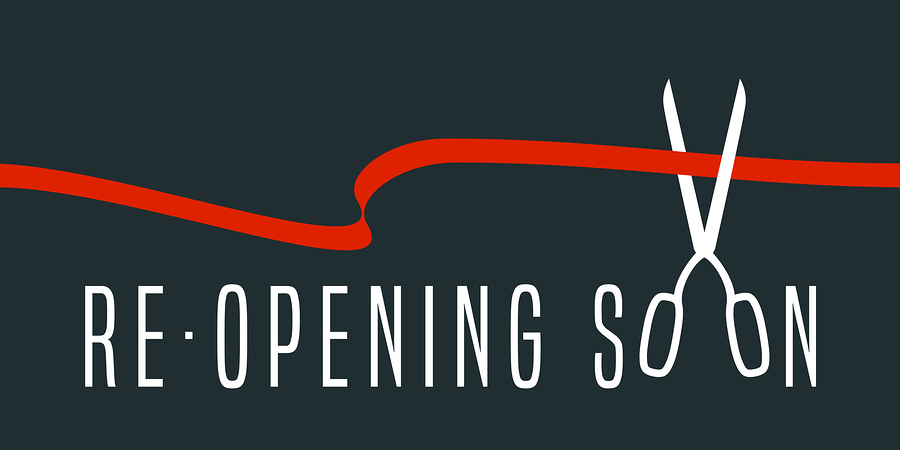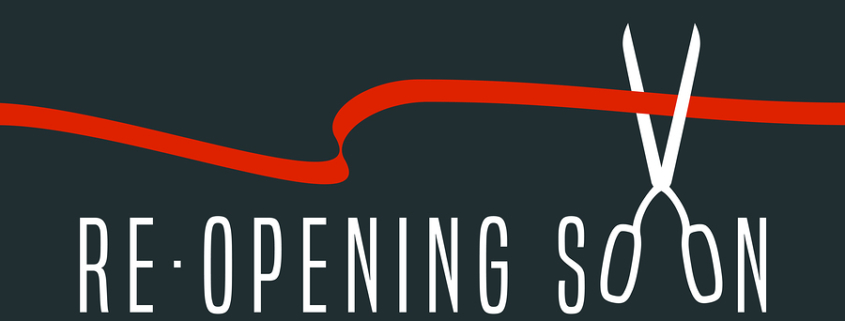The Sign Businesses For Sale Blog
Getting Back to Business After the COVID-19 Pandemic

Historians have long known the historical relevance and impact of epidemics and pandemics. Despite our various technological advances and the complexity of our society, disease can instantly change the course of history. Not having a robust global system for dealing with disease and pandemics comes with a hefty price tag. In the case of the COVID-19 economic crisis, the price tag will no doubt be in the trillions.
You can’t control what has happened, but you can focus on what to do when the pandemic is over and life begins to slowly return to normal. In his recent article, “How to Hit the Ground Running After the Pandemic,” author Geoffrey James explores what businesses need to do to jumpstart their operations once the pandemic is in the history books.
James wants his readers to understand that the pandemic will end and that business owners need to be ready to charge back in when the pandemic is over and the economy rebounds. As James points out, if history is any indicator, the economy will eventually rebound.
Almost everything about this economic downturn is unique. Take, for example, the fact that the U.S. has just seen its largest-ever economic expansion. The gears and wheels of the economy were spinning along quite quickly before the pandemic hit. This could help restart the economy faster than in past severe economic downturns. In short, many experts feel that this particular economic downturn could be short, but of course, this is speculation. There is no way to know for sure until COVID-19 is in the rearview mirror.
James correctly asserts that businesses need to put together a plan for how they will get up and running as soon as the pandemic is over. His recommendation is to divide your plan and thinking into four distinct categories: Facilities, Personnel, Manufacturing, and Marketing.
Each of these categories has three key questions that business owners should be asking themselves so that their businesses are ready to hit the ground running when COVID-19 is over. Below are a few of the key questions James recommends asking.
- How can we create the most sanitary and disease-free workplace possible?
- Which employees will continue to work from home?
- When there’s a spike in demand, how will we ramp-up?
- What will be our “We’re Back!” marketing message?
The pandemic caught everyone except the experts off guard. Moving forward, business leaders, think tanks, and politicians alike need to work to develop and implement robust plans to minimize the damage caused by pandemics. Humanity, and business, has been “lucky” several times in recent years, as we dodged bullets ranging from Ebola to SARS.
As James points out in his article, “Failing to plan is planning to fail.” Businesses need to plan for the recovery and they need to plan for another pandemic because another one is quite possible especially if better planning and decision making are not firmly entrenched in place.
Copyright: Business Brokerage Press, Inc.
The post Getting Back to Business After the COVID-19 Pandemic appeared first on Deal Studio – Automate, accelerate and elevate your deal making.
COVID-19 Advice for Hospitality Businesses

Clearly, some industries are taking a bigger hit from COVID-19 than others. Any industry that requires a great deal of interaction with the public, or where people gather in large groups, are obviously having very tough times. Movie theaters and restaurants, for example, have essentially gone dark. Some restaurants are easing the bloodletting a bit by providing delivery, but in the vast majority of cases, revenue pales in comparison to what it was prior to the pandemic.
While there is no doubt that the hospitality industry is suffering right now, business owners should understand that there are concrete steps they can take now to improve their odds of surviving the pandemic. In this article, we’ll explore a few of these key ideas.
One of the areas every decision maker and business owner in the hospitality industry should be thinking about right now is staff. During a recent industry roundtable discussion, John Howe, chairman of the International Association of Business Intermediaries, pointed out that staffing problems will continue long after the pandemic has paused or is over. He believes that hospitality businesses will have a tough time getting the staff they need, especially in the short run.
His key piece of advice is to work to have a line on people for key positions. This will allow you to at least get back up and running with basic operations. While it may be a while before hospitality businesses are at “full steam,” it is critical that they are able to open up in some fashion, as this will translate into much needed revenue. Hospitality businesses looking to survive the pandemic should focus on making certain that key positions have been filled. In this way, the post-pandemic relaunch can be as smooth as possible.
Founder and President of Cornerstone Business Services, Scott Bushkie, explained that there are a lot of hospitality industry people out of work right now, and this represents a real opportunity. Now, is the perfect time to potentially upgrade staff. There are plenty of experienced and proven hospitality people looking for positions. The new people you bring may come with extra benefits such as bringing their customers, suppliers, and other relationships with them. For those in the hospitality industry who may have always wanted to upgrade their team, now is perhaps the best time in history to do so.
Employees are a foundational element of your business. Improving your staff means you’ve improved your business and boosted your odds of survival. Bringing in new team members can help you prepare for the post-pandemic business environment. It also offers up the potential for you to upgrade an important element within your business.
Copyright: Business Brokerage Press, Inc.
The post COVID-19 Advice for Hospitality Businesses appeared first on Deal Studio – Automate, accelerate and elevate your deal making.
Dealing with COVID-19’s Economic Impact: Planning and Communication are Key

There are many things that you should be doing to deal with the COVID-19 pandemic. At the top of the list is to be proactive. Now is the time to be thinking about how best to position your business after the economy has returned to something near normal. Now is not the time for self-pity. In fact, not preparing for the relaunch of the economy will cost you.
In David Finkel’s recent Inc. article entitled, “10 Things Every Small-Business Owner Needs to Do to Deal with the Impact of COVID-19 on Their Business,” Finkel outlines the 10 key steps business owners should take immediately. Finkel is the author of 12 business books and CEO of Maui Mastermind business coaching company.
There is no way of knowing how long the COVID-19 fueled economic downturn will last, and that means time is of the essence. Business owners, regardless of their particular sector, need to prepare as though the economy could relaunch tomorrow.
Finkel’s 10 Things:
- Take steps to protect your staff and customers from getting sick.
- Tell your customers what safety steps you’re taking.
- Educate your staff on how to stay healthy at work and at home.
- Engage in scenarios planning to deal with how markets could change.
- Enlist vendors and suppliers for help. You should ask them to negotiate payment terms.
- Take steps to plan out your cash flow.
- Open a dialogue with your management team.
- Go on the offensive and look for opportunities.
- Get your team together and brainstorm.
- Be sure your key leaders communicate in a united fashion.
There are definitely some commonalities amongst these 10 important steps. You’ll notice that communication and education are at the heart of most of these points.
There is a lot of fear and uncertainty out there. More than almost any time in modern history now is the time to communicate. All business owners should be advised to communicate with their customers, clients, suppliers, staff, and management team in a clear fashion. Effective communication based around a consistent and logical message can help to reduce fear. The fear sections of the brain are driven by our primordial ancestors’ dread of the unknown lurking in the darkness. Part of being a good leader is to reduce those fears whenever possible.
Another common thread is planning, which includes looking for new opportunities. Whenever there is chaos and fear, there are also opportunities. You should be looking for those opportunities, whether it is improving your own business practices or looking for other companies to buy.
Good communication and planning can help you navigate these choppy waters. Planning for the recovery from COVID-19 pandemic could be the difference between staying in business and going out of business.
Copyright: Business Brokerage Press, Inc.
The post Dealing with COVID-19’s Economic Impact: Planning and Communication are Key appeared first on Deal Studio – Automate, accelerate and elevate your deal making.



